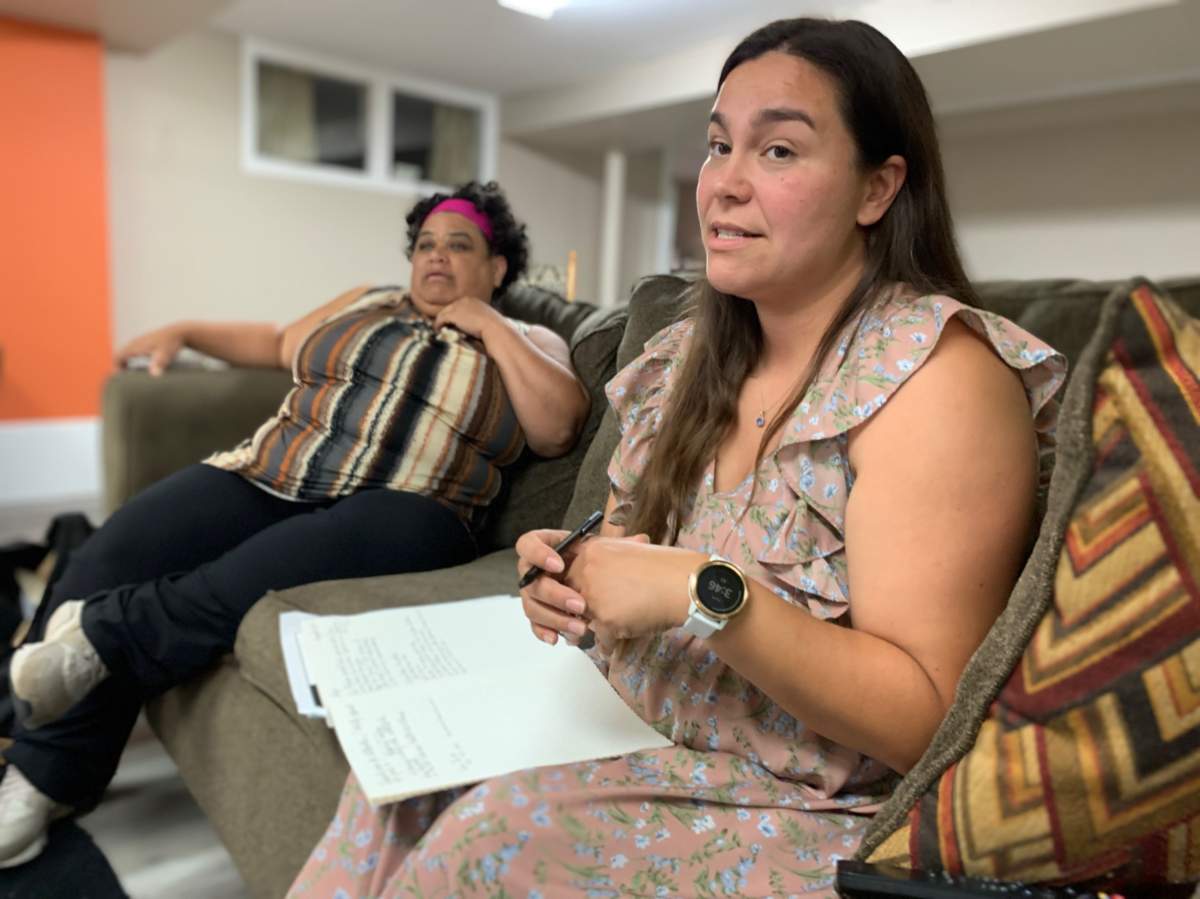With many Indigenous people in Nova Scotia saying they have limited access to midwifery services, the Nova Scotia Native Women’s Association has visited reserves across the province, talking about expanding the services.

“What we’ve heard so far is that women are often not heard right within their birthing experience. We are also hearing a desire for ceremony to be restored around birth,” says Alisha Julien Reid, lead consultant on the project.
“It just seems to naturally be bringing out the voices that have something to give us. And then hopefully we’ll get to a place where we can bring to the people what they’re asking for.”
Julien Reid is a midwife originally from Millbrook First Nation and she has been leading the community engagements along with Suzanne Brooks, the wellness advisor for the association.
“We are just hearing the weak points, but also understanding the strengths of what’s already established. We are hearing really good programs that are being done in Indigenous communities, that are being established and are also often grassroots initiatives. That can be 24-7 breastfeeding support in some communities. Even just raising awareness around postpartum depression.” says Julien Reid.
The community meetings have taken place on 13 First Nations reserves, and are part of a partnership between Tajikeimɨk, the Mi’kmaw health authority, the Nova Scotia Women’s Association and the National Aboriginal Council of Midwives.
Julien Reid says the groups are looking at ways to decolonize the birthing experience and restore traditional Mi’kmaw ceremonies and spiritual health.
“So that, for example, could be placenta ceremonies. So that’s actually burying the placenta and bringing that back to the ground as an offering with prayers. And often that was done in order to route that baby into their community,” she says.

Get daily National news
“It can be as simple as allowing the first word a baby hears is either the drumming or singing of a family member or the voice of a parent, and that being respected on the level in the birthing centre … (and) even the hospital room, where not a physician or a nurse speaks a word until that’s done,” she says.
Lisa Robinson, who attended the Halifax session, has given birth four times and says she has always felt culturally isolated.
“I was never allowed to fully feel. I felt like I was never listened to and I know my story is not unique, especially in our community. It’s such a medical procedure and it should be more of an experience.”
The association says participants have expressed interest in becoming midwives but there is currently no program offered in Nova Scotia.
The next goal for the association is to see a university-level, Indigenous-led midwifery program offered in Nova Scotia.









Comments